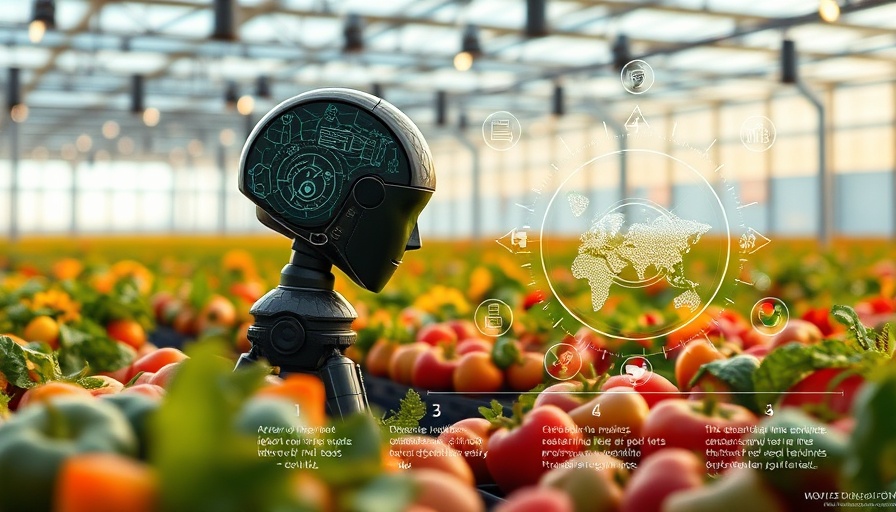
Unlocking the Power of AI in Food Production
In today's fast-paced world, the pressing demand for nutritious food has never been higher. To meet the needs of a growing global population while ensuring sustainable practices, food producers are increasingly looking towards artificial intelligence (AI) as a solution. Leveraging AI technologies can enhance production capabilities, streamline supply chains, and drive innovation across the food industry, transforming how food is grown, processed, and distributed.
The Transformation of Agriculture Through AI
Farmers are already reaping the benefits of AI as the technology revolutionizes agriculture. AI-powered tools help farmers monitor crop health in real-time, optimize input delivery, and enhance harvesting accuracy. Innovations such as predictive analytics allow for quicker adaptation to changes in weather patterns or disease outbreaks, ultimately improving yields and reducing waste. The integration of AI in agriculture not only boosts production but also supports sustainable practices by enabling farmers to utilize resources more effectively.
Enhancing Food Safety with AI Technologies
As consumer concerns over food safety increase, AI is stepping in to safeguard the quality of what we eat. Companies are adopting AI-driven solutions for rigorous quality control and contamination detection. For instance, Nestlé has integrated AI visual inspection systems into their production lines to ensure consistent product quality. This proactive approach can help identify potential foodborne illnesses before they become widespread, enhancing consumer trust and public health.
AI's Role in Innovation: Accelerating Research and Development
AI is accelerating the research and development (R&D) cycle in food science, converting traditional trial-and-error methods into more efficient, data-driven processes. By simulating thousands of conditions and genetic variations, scientists can quickly identify formulations that deliver desired nutritional and sensory characteristics. This capability not only shortens time-to-market for new products but also aligns with shifting consumer preferences towards healthier and more sustainable options.
Partnerships: The Key to Successful AI Integration
Despite the considerable promise of AI in food production, challenges remain, especially in industry-wide adoption. Limited data-sharing capabilities and varying technological maturity across companies impede significant advancement. However, strategic partnerships among large agricultural firms, tech startups, and academic institutions can bridge these divides. By combining resources and expertise, stakeholders can create a robust framework to drive AI adoption, aligning technological benefits with practical applications in the field.
Future Predictions: AI's Growing Influence in Food Equity
As AI continues to evolve, its role in fostering food equity and sustainability is a conversation that cannot be overlooked. Experts predict that innovations driven by AI will help address global food challenges. By utilizing algorithms to predict food insecurity and enhance nutritional access, AI has the potential to democratize food production and accessibility—paving the way for a more equitable food system.
Call to Action: Embrace AI for a Sustainable Future
As we stand at the precipice of a technological revolution in the food sector, it’s crucial for industry leaders to embrace AI not just as a tool for efficiency, but as a fundamental aspect of addressing sustainability and consumer needs. The future of food production relies on innovative thinking and collaboration—navigating these changes can lead to significant advancements in how we nourish the world.
 Add Row
Add Row  Add
Add 




Write A Comment